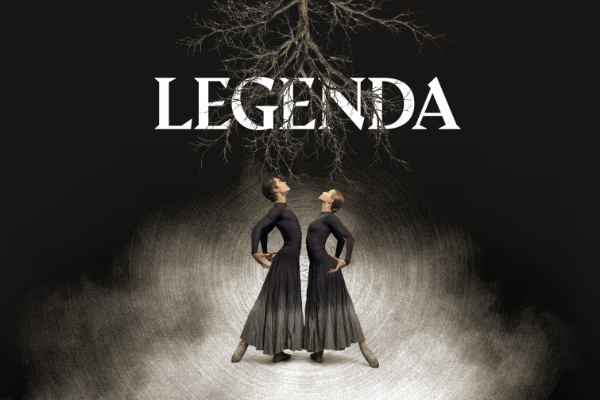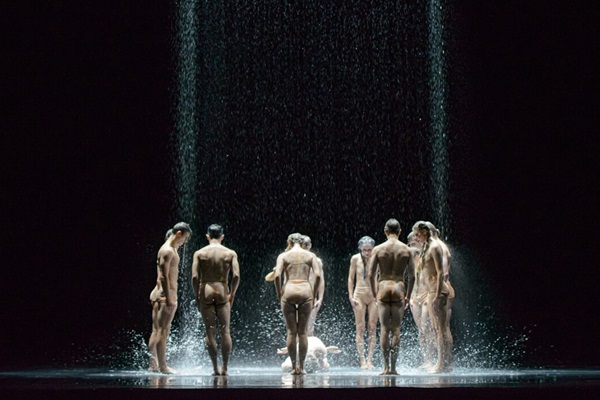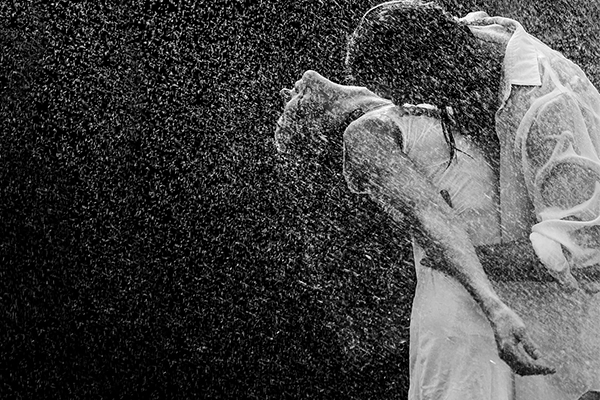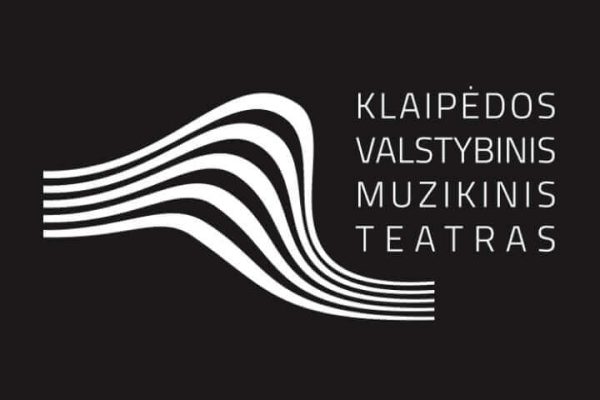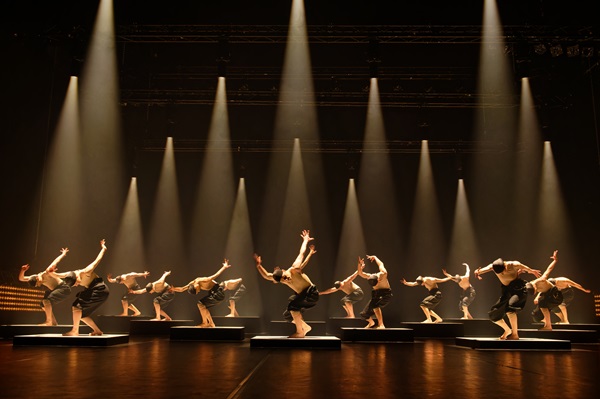Eglė, Queen of the Grass Snakes
A dance performance in 2 parts
after Eduardas Balsys’ ballet in 4 acts
The neo-classical ballet Eglė žalčių karalienė (Eglė, Queen of the Grass Snakes, 1960) by Eduardas Balsys (1919‒1984) remains allegedly the most popular and frequently staged contribution to the genre by a Lithuanian composer. In writing his ballet, Balsys, who was one of the most influential and seminal figures in Lithuanian post-war music, drew on the eponymous poem by Salomėja Nėris (1904‒1945) based on a well-known Lithuanian folk tale with many references to the Baltic mythology. Balsys emphasized the mythological elements of this ‘beauty and the beast’ type of a fairy-tale and put the entire gamut of human emotions at the centre of action in this drama of love, betrayal and murder. The story plays out within a colourful orchestration, abounding with contrasting moods and recognisable folk music influences.
At the invitation of the Klaipėda State Music Theatre choreographer Martynas Rimeikis created his dance performance based on Balsys’ ballet music in 2019 to mark the centenary of the composer’s birth. In close collaboration with other members of the creative team, consisting of conductor Modestas Barkauskas, set designer Marijus Jacovskis, costume designer Elvita Brazdylytė and lighting designer Levas Kleinas, he sought to let the music speak for itself and guide his choreographic vision, without projecting modern social issues into this timeless love story evolving around fisherman’s daughter Eglė and her beloved serpent-turned-man Žilvinas. Such cautious and sensitive approach to the classic subject matter allowed shifting the focus from the visual lavishness characteristic of the productions based on fairy tales to more abstract storytelling through dance.
Balsys’ compelling ballet music seems to stand the test of time and is given a new lease on life in this original production that speaks the language of contemporary dance. It was mentioned among the most significant cultural events of the year 2019 in Lithuania and won some important accolades, including two Golden Crosses of the Stage (the most prestigious theatre prize in Lithuania) awarded to Martynas Rimeikis for the best choreography and Julija Stankevičiūtė for the best dance performance.
View the video recording of this performance >>
AWARDS
The Mask of Gratitude (27/3/2020) to the creative team for the best theatre performance of the year 2019 in Klaipėda
Golden Crosses of the Stage (27/3/2020) to Martynas Rimeikis for choreography and Julija Stankevičiūtė for the role of Eglė





Prologue
THE STORM
The sea is raging, hissing, rumbling…
It is Žilvinas – the serpent prince of the Baltic Sea – who rages in a fury… He has been suffering for many years: ever since Žilvinas has fallen under the witch’s spell, grief, hatred and anxiety, bitterness and spite have been his companions, causing the ships and goods to drown, and people to perish…
His strength runs out; he yearns for a moment of peace for himself and for the people…
But alas! The witch forces him to rage in a fury again…
Where can he find peace? Who can bring peace to him?
All of a sudden: what does he see on the shore?
It’s Eglė, a fisherman’s daughter. If she would fall in love with Žilvinas, the storm would stop raging; there would be no place for grief, hatred and anxiety, bitterness and spite…
If Eglė would only fall in love with Žilvinas!
Act I
THE BALTIC SHORE. SUNSET
Eglė, her sisters and other girls are laughing merrily, playing and dancing in a roundel on the shore.
Dusk falls. Distant sounds of horns call the girls home. Friends and elder sisters obey that call, while the youngest sister Eglė follows her impulse to swim in the sea one more time.
It’s already a moonlit night, a calm summer night by the sea. Eglė cheerfully steps on the shore after having a swim, but what is it? She finds herself in the embrace of a slithery serpent. “Let me go, let me go, won’t you?” she says, but Žilvinas wouldn’t let her go unless she promises to marry him. Her pleas and supplications are futile. She cannot refuse because Žilvinas says he loves her and Eglė would be his most beloved and happy spouse… And then a witch’s spell will be undone!
Trembling with horror and fear, Eglė gives her word just to get rid of him at any cost…
AT THE PARENTS’ FARMSTEAD. MIDDAY
Young people are dancing and merrymaking. What brawny brothers Eglė has!..
But why is Eglė mirthless? She is struggling with uncertainty: what will happen to her?
Young village people continue dancing and amusing themselves. But lo, the yard is filled with serpent matchmakers! What brought these uninvited guests here? They came for Eglė who promised herself to their master, as a bride to the prince of the Baltic Sea…
What can be done? Should they give Eglė away? No, they can take a goose or a sheep instead… But why is the cuckoo bird singing? For the first, for the second, and for the third time… The parents’ deceit failed.
The grass snakes return enraged and threatening. They prepare to fight with brothers…
No, no bloodshed, please! Eglė begs, beseeches everyone to stay calm. “I gave my word and now must keep it! Farewell my dear parents, sisters and brothers, and you, my sweet lasses and lads. This is my fate and so be it!”
Eglė is wailing.
Then she leaves escorted by the strange creatures to the strange place. And what about the brothers? They swear to have their revenge.
Act II
BOTTOM OF THE SEA, ŽILVINAS’S PALACE
Žilvinas is yearning, restless and perturbed. Will Eglė keep her promise? He worries. Will she absolve him from the witch’s spell? And here she is, in the Žilvinas’s palace.
How unusual and unfamiliar everything seems to her. How all is full of fairness and beauty! Fabulous! Welcome the bride of Žilvinas, Prince of the Baltic Sea!
The couple is left alone – just Eglė and Žilvinas. What should they say? How should they find a way into each other’s heart? Thank you, dearest, for keeping your promise!
Their lips join and… the bolt of lightning rips through the waters: Žilvinas now stands before Eglė not as grass snake, not anymore, but as a young man – handsome, slender and dignified. Is it the same being I feared so much?
For many long years, pain and grief, hatred and anxiety, bitterness and spite have been my companions – that is, I’ve been under the witch’s spell. All has been undone at once. As long as love and fidelity stay strong, there’s nothing to fear. May Fairness and Beauty accompany our love!
Act III
AMBER CHAMBERS IN ŽILVINAS’S PALACE
Many years have now passed. So far nothing has gotten in the way of their happiness. Their children have grown up, playing, revelling and frolicking around – two sons, Ąžuolas (Oak) and Beržas (Birch), and daughter Drebulytė (Aspen) who is their youngest.
But Eglė feels homesick nonetheless. Let me, Žilvinas, see my family just for a little while. Žilvinas does not lose his temper and yet is disquieted. He thinks of the ways to prevent his wife from visiting home. “Very well, my sweet Eglė, you may go, but first spin this tuft of silk thread, and then wear down a pair of iron clogs.”
She was spinning day and night but the tuft was not getting any smaller! And the clogs were so heavy, they might never wear down!
The wicked sorceress is here to offer help. If she would separate Eglė from Žilvinas, the happy family’s hearth would be broken and she would get Žilvinas back under her control. The storms would rage again and Žilvinas, a serpent prince of the Baltic Sea, would rage in a fury. All over again, the ships and goods would drown, and people would perish…
Now at last the spinning is done and the clogs are worn down. “Žilvinas, my lovely Žilvinas, let us go visit our homeland and we will return to you soon,” implored Eglė and the kids too. “Take this horn, my dearest. Blow it when you head back and summon me from deep waters: if I’m alive, you will see me coming in a wave with white crest; if I’m no longer alive, you will see a red one.” “And no one in the whole world should know this secret.” And so they swore an oath.
Act IV
RETURNING HOME
It feels so good to return home after so many years! But Eglė is apprehensive. Maybe she should not separate from her husband? Well, we will not stay long, my love, and will rush back, longing for our home.
ST. JOHN’S FEAST
The guests came right in time to celebrate the Midsummer. Everyone is having a good time, feasting and being merry. Everything seems new and unfamiliar to Ąžuolas, Beržas and Drebulytė. They seize their time to join in the merriment and jolly dance. But Eglė, why did you leave your husband at sea? She fell silent.
Her brothers are plotting conspiracy. They need to interrogate her children. Who is this mysterious grass snake? How can they invoke him? They haven’t forgotten their vow of revenge against the serpent prince who dared to abduct their youngest sister Eglė. Consumed with anger, the uncles interrogate Ąžuolas and Beržas. But the boys refuse to betray the secret of the horn. Never! They have taken an oath.
How frightened is Drebulytė, surrounded by her embittered uncles! They keep asking how they should call her father on the shore. “I shall not betray my daddy…” whispers Drebulytė time and again. But her uncles become even more threatening! Oh how she suffers as they strike her with the rod… and when the fear overwhelms her little heart, she gives the secret of the horn away.
Epilogue
The sea is raging, surging, raving… The brothers kill Žilvinas with their scythes. They shall now have Eglė and the children back with them forever! Eglė rushes to the shore with her children in tow. Ažuolas blows the horn and stiffens in horror… the red crest is coming. Whoever of you has blurted out the secret? Who has broken an oath? Drebulytė is weeping oh so sorely. “May you turn to an aspen tree and tremble day and night… And you, my sons, may become strong trees and I, your mother, will turn into a spruce standing in the middle and rustling forever by the sea, close to my beloved Žilvinas…”
Eduardas Balsys, 1960

